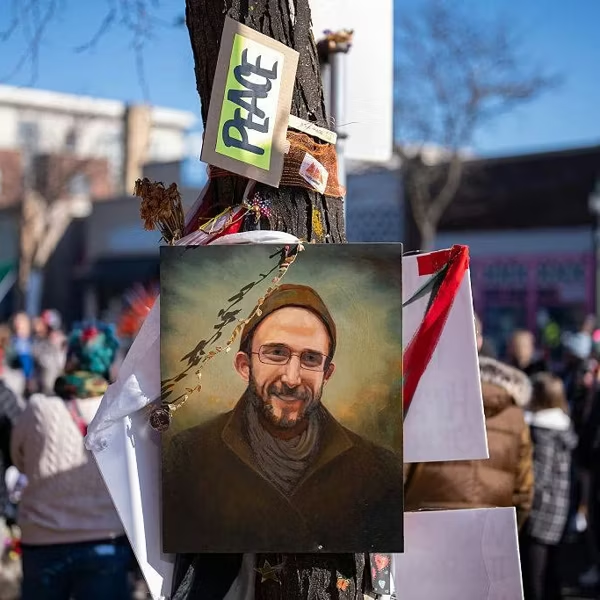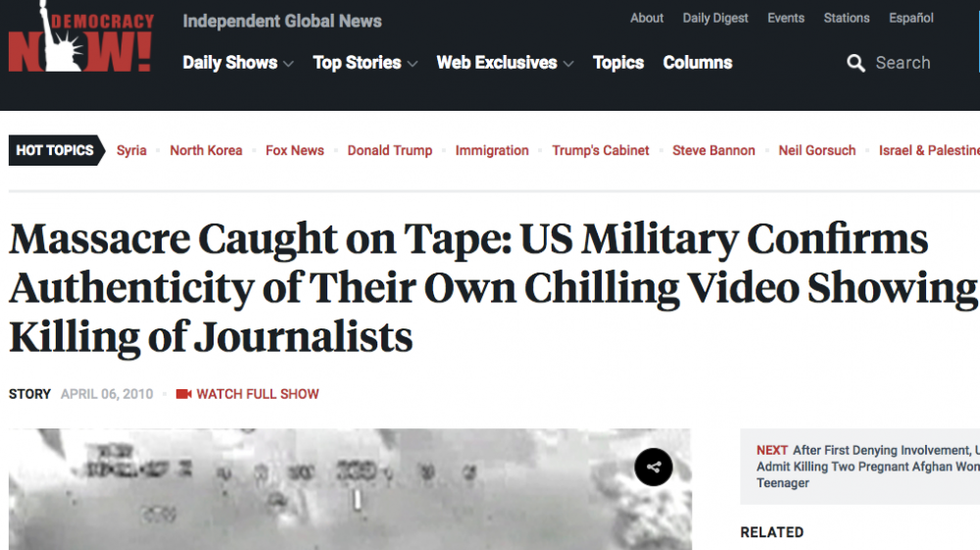Ever since Chelsea Manning was revealed as the whistleblower responsible for one of the most important journalistic archives in history, her heroism has been manifest. She was the classic leaker of conscience, someone who went at the age of 20 to fight in the Iraq War believing it was noble, only to discover the dark reality not only of that war but of the U.S. government's actions in the world generally: war crimes, indiscriminate slaughter, complicity with high-level official corruption, and systematic deceit of the public.
In the face of those discoveries, she knowingly risked her own liberty to disclose documents to the world that would reveal the truth, with no expectation of benefit to herself. As someone who has spent years touting the nobility of her actions, my defenses of her always early on centered on the vital nature of the material she revealed and the right of the public to know about it.
It is genuinely hard to overstate the significance of those revelations: Aside from exposing some of the most visceral footage of indiscriminate slaughter by the U.S. military seen in decades, the leaks were credited -- even by harsh WikiLeaks skeptics such as New York Times Executive Editor Bill Keller- with helping to spark the Arab Spring. Even more significantly, revelations about how the U.S. military executed Iraqi civilians, then called in a bombing raid to cover up what they did, prevented the Iraqi government from granting the Obama administration the troop immunity it was seeking in order to extend the war in Iraq.

Though Manning's case has been somewhat colored by the changing perceptions over time of WikiLeaks, she actually first attempted to contact traditional media outlets such as the New York Times, the Washington Post, and Politico with her revelations, only to be thwarted by a failure to get their attention. In the online chats that she had with a deceitful individual who thereafter became a government informant and turned her in, she said her motive in leaking was solely to trigger "worldwide discussion, debates, and reforms," adding: "I want people to see the truth ... regardless of who they are ... because without information, you cannot make informed decisions as a public."
In the wake of these disclosures, the U.S government -- as it reflexively does -- claimed that the release of the documents would endanger lives, and that those responsible for publishing the leaks had "blood on their hands." But subsequent investigations by the AP and McClatchy found those accusations utterly unfounded, and ultimately, even Defense Secretary Robert Gates ridiculed the hysteria driving the government's claims about the leak's harms as "significantly overwrought."
In sum, though Manning was largely scorned and rejected in most mainstream Washington circles, she did everything one wants a whistleblower to do: tried to ensure that the public learns of concealed corruption and criminality, with the intent of fostering debate and empowering the citizenry with knowledge that should never have been concealed from them. And she did it all knowing that she was risking prison to do so, but followed the dictates of her conscience rather than her self-interest.
Read the full article at The Intercept.




